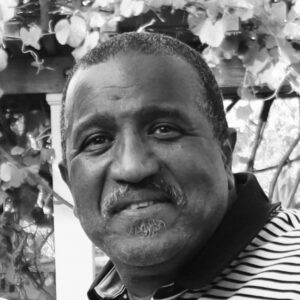Joaquin Ciria
| Exoneration Date: April 18, 2022 Years Lost: 32 |
County of Conviction: San Francisco County |
| Conviction Year: 1990 Sentence: 31 Years to Life |
Causes of Wrongful Conviction: Eyewitness Error Ineffective Assistance of Counsel Perjury/False Testimony |
| Convicted of: First-degree murder |
State Compensation: Yes |
On April 18, 2022, the San Francisco Superior Court exonerated Joaquin Ciria after 32 years of wrongful incarceration for the murder of his friend in the SOMA district in 1990. Ciria has always maintained his innocence and along with pro bono attorney Ellen Eggers, the Northern California Innocence Project (NCIP) actively worked to help exonerate him.
The ruling was supported by District Attorney Chesa Boudin after the Northern California Innocence Project and attorney Ellen Eggers brought the case to the DA’s Innocence Commission for review.
The case
Ciria was convicted of the 1990 murder after the actual perpetrator started rumors that Ciria was guilty of the crime. Relying on the rumors, police immediately targeted Ciria and coerced George Varela—the man who drove the actual shooter to the crime—to falsely name Ciria as the shooter. Although he originally told the truth of Ciria’s innocence, when police told him he could either implicate Ciria or be charged with the murder, Varela succumbed to the pressure. In a recorded interview, Varela agreed to be a witness against Ciria and testify to “whatever (police) said.”
Based primarily on Varela’s perjured testimony, Ciria was found guilty and sentenced to 31 years to life.
Ciria’s exoneration was enabled due to “newly discovered evidence” of Ciria’s innocence that NCIP and Eggers presented to the court. Among the new evidence:
- Testimony by a family friend and Varela’s sister that Varela had admitted to them both that Ciria was innocent.
- An eyewitness who had been imprisoned for an unrelated crime finally came forward in 2020 to say that he saw and heard another man, Candido Diaz, arguing with the victim at the scene. After the gunshots, the eyewitness ran into the alley and saw Diaz get into Varela’s car and flee the scene of Bastarrica’s murder. Thirty years later, after the eyewitness was released from prison, he finally revealed the truth. He sought out Ciria’s and Bastarrica’s families to reveal for the first time that Diaz had killed Bastarrica. The witness begged Ciria’s family for forgiveness for letting their loved one stay in prison for decades for a crime he didn’t commit.
Ciria’s reversal was also bolstered by a candid declaration from Ciria’s former defense attorney admitting to mistakes, such as not playing the coercive portions of Varela’s recorded interview during the trial and failing to call Ciria’s alibi witnesses—who have maintained for over three decades that he was at home with them and his newborn son.
The case has taken unusual turns along the way, including when a judge ruled last September that —despite District Attorney Boudin’s determination in June 2021 that Ciria was innocent—there was no legal precedent requiring a judge to overturn a conviction on that basis. That led to long delays in Ciria’s petition challenging his conviction, and then a highly unusual evidentiary hearing on March 21 at which both the parties—prosecution and defense—argued for Ciria’s release.
“This tragic case shows us once again why our system of justice needs robust checks and balances, as well as meaningful reform,” said Linda Starr, executive director of NCIP, which is part of Santa Clara University School of Law. “Joaquin could have been freed one year ago, if our system mandated that District Attorney findings of innocence must result in conviction reversals. Or he might never have been wrongfully convicted 32 years ago— if police didn’t take shortcuts or if the legal system were forced to seriously confront the ways in which suspects of color don’t truly get the presumption of innocence. ”
Judge Conroy also noted in his ruling the importance of science-based eyewitness-identification procedures which NCIP has championed and were passed in California in 2018. Those laws were not in effect at the time of Ciria’s conviction.
Conclusion
On April 20, 2022, Ciria was released from the San Francisco County Jail after 32 years of wrongful incarceration. Ciria intends to spend quality time with his son, his wife, and his longtime friends and supporters.
“As a result of this wrongful conviction, the State stole 32 birthdays, 32 Christmases, 32 years in which he could not be with his son for all the special moments,” said Kaneb. “Yet Joaquin has kept his big heart and easy smile and is full of joy as he looks forward to starting his life again.”

